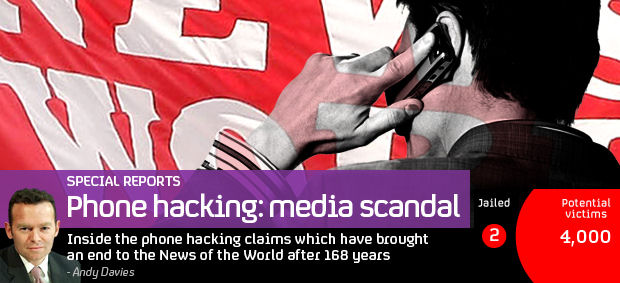Leveson inquiry: News Corp’s close links to Downing St
On the day David Cameron announced the establishment of an inquiry into media ethics in the midst of the phone hacking scandal, his communications director had dinner with a News Corp lobbyist.
No 10’s Communications Director Craig Oliver’s meeting with Fred Michel was revealed in text messages published on Friday as part of the Leveson inquiry. Mr Oliver told Channel 4 News that the dinner on 6 July 2011 was a social event and there was nothing wrong with it.
Speaking at the inquiry, Culture Secretary Jeremy Hunt’s former aide said he had been bombarded by messages from Rupert Murdoch’s News Corp, while the prime minister said in an interview that he had no regrets over handing responsibility for News Corp’s bid for BSkyB to Mr Hunt.
Interviewed on ITV’s Daybreak, Mr Cameron said the culture secretary had acted “impartially” – despite the fact that a November 2010 memo from Jeremy Hunt, published by the Leveson inquiry on Thursday, shows that Mr Hunt supported the bid.
“The key thing was,” Mr Cameron told ITV: “It wasn’t what he (Hunt) had said in the past. It was how he was going to do the job. And I think, if you look at how he did the job, he asked for independent advice at every stage and he took that independent advice”.
‘Almost game over’
At this morning’s session of the Leveson inquiry, which is looking into the relationship between politicians and the media, it emerged that Jeremy Hunt had told Adam Smith on 25 April to quit his role as special adviser – despite having reassured him the previous day, when damaging emails were published revealing his close connections with News Corp, that he had only been doing his job and not to worry.
Earlier, in evidence to the inquiry, Mr Smith confirmed he had suggested to lobbyist Fred Michel that News Corp’s bid would go ahead.
Mr Hunt’s aim was to follow the process, whereas I’m sure Mr Murdoch’s aim was to acquire the remaining shares. Adam Smith
Mr Michel, News Corp’s former director of public affairs in Europe, sent an email to fellow executives on 23 January 2011 saying it was Mr Hunt’s view that it would be “almost game over for the opposition” once the culture secretary announced he had accepted News Corp’s plans to spin off Sky News.
Mr Smith, who stood down from his special adviser role after admitting he got too close to Mr Michel, said today he did not recall using the phrase “game over for the opposition” but conceded a conversation with Mr Michel along those lines had taken place.
But the former “spad” disputed Mr Michel’s email claim that Mr Hunt was “keen to get to the same outcome” as News Corp. “I wouldn’t have said that…” he told the inquiry. “They didn’t have the same outcome. Mr Hunt’s aim was to follow the process, whereas I’m sure Mr [James] Murdoch’s aim was to acquire the remaining shares.”
Mr Smith appeared to concede that he had received a significant number of communications from Mr Michel on the subject of the takeover bid, saying he had been “bombarded” with information.
Thursday’s hearing at the Leveson inquiry heard that Mr Michel had exchanged 1919 phone calls, 158 emails and 799 texts with Mr Hunt’s team between June 2010, when News Corp announced its bid, and July last year. More than 90 per cent of these communications were changed with Mr Smith.
